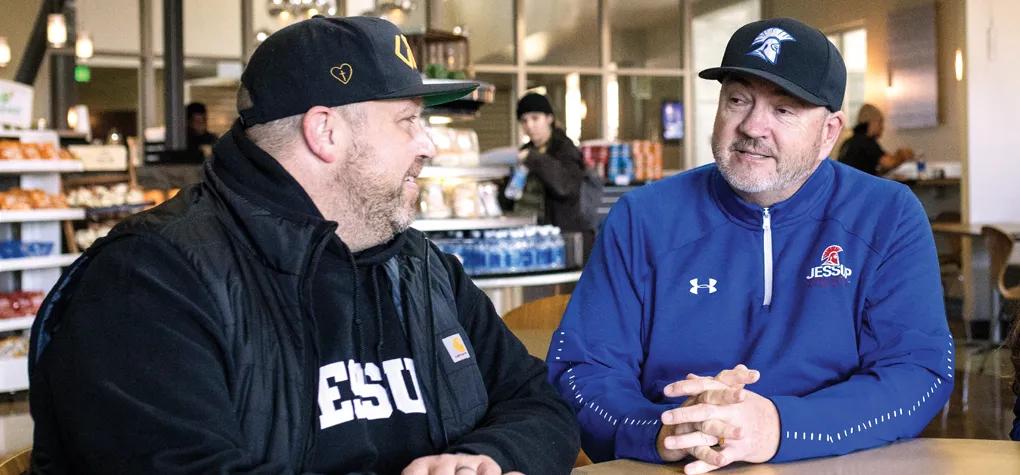
Supporting Mental Health for Students
As data continues to illustrate the increase in mental health concerns for college students and athletes, opening the door to discussion and destigmatization is key. “Talking about mental health is a difference maker and within the NAIA, Jessup is leading in this space,” said Jessup’s Vice President of Athletics, Lance Von Vogt.
Last December, Jessup’s Director of Student Life, Brandon Farmer, and Assistant Athletic Director, Scott Sorgea were featured on the NAIA’s national Lunch and Learn podcast. The topic addressed ways to support student-athlete’s mental health.
One way Jessup works to prevent students from falling through the cracks is the Care Report system and the Care Team. The team is composed of representatives from Student Life, Campus Ministries, Residence Life and Housing, Student Success, Athletics, and Campus Safety. This team works seamlessly to identify and reach out to students who might be struggling. “One of the reasons this works so well is that our team is built on trust,” Farmer said. “Our campus knows when a concern is shared about a student, we commit to respond and work cohesively to do our part, connect with the student, and direct them to various resources for help. It’s where the rubber meets the road.”
While a Care Report can range from a student missing classes to a student dealing with suicidal ideation, each report is acted upon. “We reach out in a variety of capacities. No matter what it is, we want our students to know we’re there for them,” Sorgea said. “During a recent NAIA webinar, I was astonished to learn that out of a group of 300 coaches surveyed, only three knew if their institutions offered mental health services. That just isn’t the case here at Jessup. We have a system that works, and we know how to offer help.”
Getting help always starts with a discussion to determine what resources are most beneficial to the specific situation. Sometimes it’s as straightforward as a touch point or simple connection to ensure the student feels supported and gets back on track. Other times, further resources are needed.
Available around the clock, Jessup now offers 12 scheduled counseling sessions to any student with the licensed therapist of their choice through the Timely Care App. The University also works with Soul Care at Bridgeway Church, an organization that provides affordable and accessible counseling, along with Warrior Counseling therapists on campus who are masters of counseling psychology students in training, and appropriately supervised.
In general, the top two issues most students are facing involve anxiety and depression. While some are dealing with challenges at home, others may struggle with confidence and identity, not recognizing their worth. Many first-year and transfer students are faced with homesickness and the transition to adulthood, still others carry the heavy burden and financial stress of attending college.
“One thing COVID-19 did was give people permission to tell others how they feel,” Farmer said. “Unfortunately, within our community, the topic of mental health carries a strong stigma. In essence, we’re faced with a problem that is both Christian and cultural. A lot of our students are afraid to go to counseling because of what their parents might think,” he said.
Serving as the conduit between students, athletes and the help they need, Sorgea credits the program’s success to a continued determination to stay in the forefront. “We strive to stay in front of our faculty, adjuncts, staff, coaches, success counselors…virtually anyone the student interacts with.” Sorgea connects key partners regularly, building synergy and keeping a steady pulse on the well-being of students. Having served in this role for three years, Sorgea has never observed an instance where the student isn’t already known by at least one member of the Care Team.
Sorgea works hard fostering and maintaining strong relationships with a vast array of Jessup athletic coaches. “We encourage our coaches to pay attention to their athletes, even checking in with them during the offseason, especially for those students we have already identified are struggling,” Sorgea said. “You have to remember, Jessup has 13 head coaches who are all very different. But I can tell you the common denominator is they care deeply about their athletes.”
